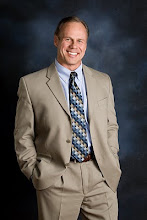I've been corresponding over the weekend with Terri Coburn, who works at the Hotze Wellness Center in TX. She posted this "book report", and it was so well done, I asked her permission to share it with you....enjoy!
Where I work we continually read medical books. Each month each staff member must read the book that has been selected for the month and write a book report on it. Therefore, I have copied my book report on Hormones, Health, and Happiness below.
Hormones, Health, and Happiness - The Whole Story, By Terri A. Coburn
Hormones Health & Happiness by Steven F. Hotze, M.D. is a book that provides what can turn out to be life-changing information for individuals who are "sick and tired of being sick and tired." Hormones, Health, and Happiness is a must read for those individuals who have been experiencing symptoms such as fatigue, memory problems, depression, headaches, weight gain, joint and muscle pain, insomnia and menstrual problems for which they have been unable to receive appropriate diagnosis and treatment.
In Hormones, Health, and Happiness Dr. Hotze methodically puts the pieces together for those who have been puzzled (sometimes for years or decades) over what is causing their health to decline and the quality of their life to disintegrate. Using the information provided by Dr. Hotze individuals can come to an understanding of the science behind their health problems and for the first time seek appropriate treatment to regain their health and to enable them to enjoy a better quality of life.
In his book Hormones, Health, and Happiness Steven Hotze tells "the whole story." He explains how hormones decline over time, how this decline negatively affects an individual's health and in turn their happiness. Dr. Hotze provides us with extraordinarily valuable insight about misunderstood symptoms commonly experienced by many women and men primarily in midlife.
Discontent to provide his readers with medical information only, Dr. Hotze goes the extra mile to engage his readers with his personal experiences and in turn provides us with the whole story of hormones, health and happiness.
What's Included in the Whole Story of Hormones, Health, and Happiness?
Personal Information
In Hormones, Health, and Happiness Steven Hotze takes the reader back in time and allows him/her to accompany Dr. Hotze on his path from "mainstream physician to wellness practitioner". In telling his story, Dr. Hotze's transparency creates in the reader a feeling of genuineness about the author and in turn helps to extend his credibility. As the reader reads about Dr. Hotze's experiences, he/she feels like cheering him on and is proud of his discoveries and successes. The author is genuine, therefore the information rings true.
An Excellent Presentation
Dr. Hotze uses a narrative writing approach coupled with medical explanations to educate the reader while keeping him/her engaged with personal stories. The personal aspect of the author's writing style functions to endear him to the reader and therefore serves as an aspect that holds the reader's attention. Furthermore, Dr. Hotze's personal approach to revealing medical evidence lends credibility to his findings and explanations.
Dr. Hotze helps the reader to understand what could be complicated medical information by using individual stories to relate medical symptoms and the resolution of these symptoms through natural means. Individual's stories (such as Maggie's story, Richard's story and Kathryn's story) provide effective illustrations of common medical problems experienced by women and men in midlife.
Hormones, Health, and Happiness uses charts appropriately to highlight important information such as the effects of estrogen and the effects of progesterone. Diagrams are also used in the book to illustrate medical concepts and provide greater understanding about how the body functions in relation to these concepts.
Each chapter effectively organizes the book's contents, identifies information and advances the story. Subtitles or headings are used to divide each chapter into distinguishable parts. Additionally, Hormones, Health, and Happiness is organized in such a fashion that it is not only informational, but entertaining as well.
2. What Your Doctor May Not Tell You About Breast Cancer by John Lee, M.D. Dr. Lee is considered a pioneer in the bioidentical hormone field. His book examines problems associated with conventional approaches to breast cancer and offers natural solutions.
3. The Hormone Solution by Thierry Hertoghe, M.D. Dr. Hertoghe explains that there are actually over 100 hormones in our body! His book lists specific symptoms that indicate specific hormonal deficiencies. It is well written and easy to read. He also discusses the use of growth hormone. You should see how great he looks for his age or any age for that matter! Another "the proof is in the pudding" example.
I feel I would be remiss if I did not also provide my top picks for medical books (not specifically about hormones) since many factors affect our health.
1. The Hidden Truth About Cholesterol Lowering Drugs by Shane Ellison, M.Sc. No one should EVER take cholesterol lowering/statin drugs. This book will explain why.
2. Statin Drugs, Side Effects by Duane Graveline, M.D. Another great book on the dangers of cholesterol lowering drugs.
3. Detoxify or Die by Sherry Rogers, M.D. Dr. Rogers explains why our bodies can be full of toxins and how to get rid of them. Her prime recommendation is the use of a FAR infrared sauna. My husband and I are purchasing one at the end of this month. We realize that by taking bioidentical hormones we are replacing what is missing, but we also want to take out what is toxic. (If a person sweats a lot through exercise this would not be needed; however, if you are hypothyroid you may not sweat as easily as others.)
4. Health Myths Exposed by Shane Ellison, M.Sc. The title says it all. Mr. Ellison's book teaches us that conventional medicine is fraught with dangerous misinformation.
Subscribe to:
Post Comments (Atom)
.jpg)






No comments:
Post a Comment